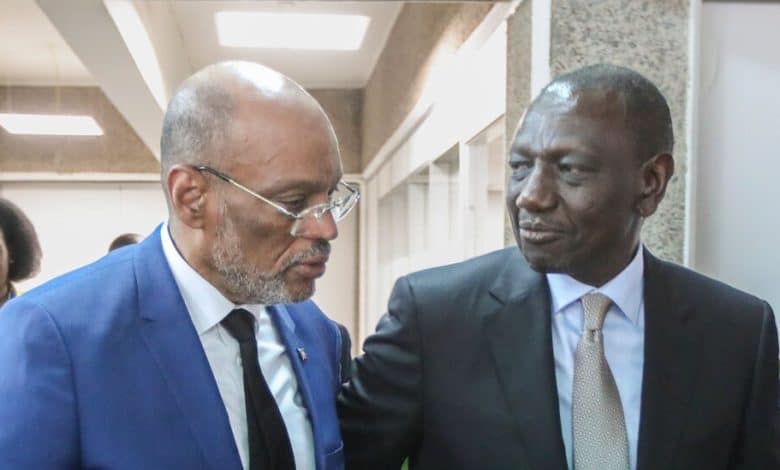Kenya Signs Deal With Haiti to Send 1,000 Police to Caribbean

Kenya’s government said on Friday it had signed an agreement with Haiti to deploy a multinational force to the gang-ravaged Caribbean nation, pushing ahead with a plan that has received criticism from rights groups and has been blocked by a court in the East African nation.
Prime Minister Ariel Henry of Haiti recently arrived in Kenya to finalize plans to send 1,000 Kenyan police officers to his country.
The plan had been declared unconstitutional in January by Kenya’s High Court, which said it could only go ahead if there were a “reciprocal agreement” between the two nations.
On Friday, President William Ruto of Kenya said the two governments had signed the agreement to enable the deployment to proceed. He did not give a timeline of when the police officers would be sent to Haiti but said in a statement that he and Mr. Henry had “discussed the next steps to enable the fast-tracking of the deployment.”
“We believe this is a historic duty because peace in Haiti is good for the world as a whole,” Mr. Ruto said in a statement.
The force, which is backed by the United Nations and financed by the United States, has been widely criticized by Kenyan opponents and activists, who have called it unconstitutional. Many of them pointed to human rights abuses committed by Kenyan police over the years and their dismal record of fighting terrorists and other criminals.
It was not immediately clear whether Kenyan opponents of the plan would contest the new agreement or the possible deployment of troops. Some Kenyan activists have said that even if Kenya signed an agreement with Haiti, Mr. Henry did not have the legal right to sign the document because he is not an elected leader.
Mr. Henry became Haiti’s leader after the president, Jovenel Moïse, was assassinated three years ago, plunging the country into extraordinary levels of violence and chaos.
Gangs control many areas of the capital, Port-au-Prince, and the police in Haiti have been unable to quell the unrest, leading Mr. Henry to call for international help.
But he himself has come under criticism for his handling of the upheaval, and many Haitians are demanding that he call elections.
In Kenya, the government has appealed the decision from the High Court that blocked the deployment. But a Foreign Ministry official also told The New York Times last month that as long as they had a “reciprocal agreement” with Haiti, the government wouldn’t wait for the court’s ruling before deploying the forces.
